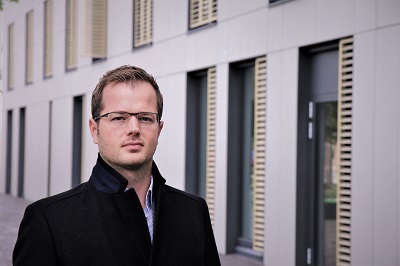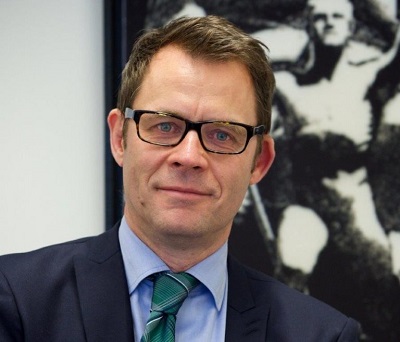Six sections
The conference will address six interconnected sections, each exploring a critical aspect of democracy and youth engagement in the digital age.
-
1
-
2
-
3
-
4
-
5
-
6
Fragmentation versus participation: The public sphere in digital age
Section 1
Addressing the paradox of digital platforms: they expand access but create echo chambers. The goal is to find strategies for balanced, informed public spheres that fosters diverse democratic participation.
Location: Maison du Savoir 4.500
Chair: Prof. Dr Robin Samuel
| 9.30 -10.15 |
|---|
| Youth, Social Media, and Democracy: The Influence of Digital Platforms on the Building of Opinions and Values. |
University of Luxembourg
| 10.15-11.00 |
|---|
| The Theatrical Public Sphere and Young Citizens in the Age of Climate Change and Health Crisis. |
- Stephen Ogheneruro Okpadah
University of Warwick, UK
| 11.15 – 12.00 |
|---|
| Silencing Falsehoods: Enhancing the EU’s Regulatory Approach to Online Gendered Disinformation. |
- Valentina Golunova
Maastricht University, Netherlands
| 12.00-12.45 |
|---|
| Access Creep: A Mixed Methods Approach Exploring Political Participation Among Adolescents in Luxembourg. |
University of Luxembourg
| 15.00-15.45 |
|---|
| Distinct Young and Old Interests? Age Differences in the Policy Preferences of Candidates and the Public. |
- Clemens Nollenberger
University of Konstanz, Germany
| 15.45-16.30 |
|---|
| Empowering Youth through Digital Sovereignty: A Framework for Political Participation in the Age of AI. |
- Dr Christian Filk
Europa-Universität Flensburg, Germany
Parliamentary democracy versus activism: Techniques of engagement
Section 2
Exploring the intersection of parliamentary democracy and digital activism, focusing on youth engagement and how formal processes and grassroots activism shape the political landscape.
Location: Maison du Savoir 4.510
Chair: Prof. Dr Stefan Braum
| 9.30 -10.15 |
|---|
| Astroturfing and Legitimacy Illusion – Harming Democratic Dialogue. |
- Sahajveer Baweja
University of Cambridge, UK
| 10.15-11.00 |
|---|
| Practicing Democracy – What’s There to Learn? Following Young Activists’ Media Practices in Institutional Politics” |
- Alice Bergholtz
Södertörn University, Sweden
| 11.15 – 12.00 |
|---|
| A Laboratory for Democracy: the FreeSZFE Protest and Reimagining Youth Political Participation |
- Kyle Mares
Södertörn University, Sweden
| 12.00-12.45 |
|---|
| Social Media Algorithms and Youth Political Participation: Analysing Segmentation, Polarization, and Engagement Strategies in the Digital Age. |
- Ignacio Fornaris Valls
Royal University Institute for European Studies, CEU San Pablo University, Spain
| 15.00-15.45 |
|---|
| Antisemitism in the protest communication of Fridays For Future. |
- Prof. Dr Olaf Gätje
- Dr Felix Böhm
University of Kassel, Germany
| 15.45 – 16.30 |
|---|
| Empowering Youth Through Digital Active Citizenship Workshops: Bridging Democratic Participation and Digital Activism. |
- Efe Kayra Soylu
Schwarzkopf-Stiftung Junges Europa, Berlin, Germany
| 16.30-17.15 |
|---|
| The postdigital city as networked civics classroom: future imaginaries of a global climate strike. |
- Saralie Sernhede
Maastricht University
Truth versus trust: Affective politics after the end of argument
Section 3
Focusing on the rise of emotional appeals over facts in politics, examining its impact on democratic dialogue and youth engagement.
Location: Maison du Savoir 4.520
Chair: Prof. Dr Anna-Lena Högenauer
| 9.30 -10.15 |
|---|
| Are the Public and the Political Elite Living in the Same Information Bubble? A Comparison of Uses from an Intergenerational Perspective in Luxembourg. |
University of Luxembourg
| 10.15-11.00 |
|---|
| Trump Dancing. Mimesis, Music and Politics on Social Media. |
University of Luxembourg
| 11.15 – 12.00 |
|---|
| Fact-Checking and Opinion Making: A Crisis of Deliberation? |
University of Luxembourg
| 12.00-12.45 |
|---|
| Language use and democracy: : pedagogical implications. |
University of Luxembourg
| 15.00 – 15.45 |
|---|
| The Mediality of Post-Truth: A Heterarchy of Realities in the Digital Age. |
- Alexander Mellin
Freie Universität Berlin, Germany
| 15.45 – 16.30 |
|---|
| New Generation, Lower Trust? Media Use and Political Trust of Dutch Adolescents. |
- Prof. Dr Marc Verboord
Erasmus University Rotterdam, Netherlands
| 16.30-17.15 |
|---|
| The New Apostolic Reformation: U.S. Religious Movements and Digital Democracy. |
- Dr Andrew Mackey
Creighton University, USA
Memory versus history: Imagined identities and ethical claims
Section 4
Exploring how digital media shapes youth perceptions of identity and ethics, focusing on its role in balancing political discourse and diverse cultural memories.
Location: Maison du Savoir 4.200
Chair: Prof. Dr Andrea Binsfeld
| 9.30 -10.15 |
|---|
| I Am Fed Up with the Conflict in Ukraine: The Interplay of Young Europeans’ Crisis Memory, Social Media Use, and Their Democratic Disposition. |
- Dr Eva Tamara Asboth
- Dr Andreas Schulz-Tomančok
Austrian Academy of Sciences & University of Vienna
| 10.15-11.00 |
|---|
| Digital Nostalgia: PASOK’s Governmental Past as a Consumerism Utopia during the Greek Economic Crisis. |
- Dr Nikolaos Gkionis
Min. of Digital Governance, Greece Advisor at Hellenic Parliament
| 11.15 – 12.00 |
|---|
| Inequalities in Youth Development: Social Origin, Developmental Tasks, and Socio-Political Attitudes in Switzerland. |
- Prof. Dr Andreas Hadjar
- Prof. Dr Dirk Baier
University of Fribourg, Switzerland & Zurich University of Applied Sciences
| 12.00-12.45 |
|---|
| Public Online Space and Gift Economy. |
- Prof. em. Mag. Dr phil. Marc Ries
University of Luxembourg
| 15.00 – 15.45 |
|---|
| Transforming Education Through Technology: How Blockchain and Tokenization of Identity Capital Can Shift the Paradigm of Learning for Youth. |
- Dr Igor Dunayev
V. N. Karazin Kharkiv National University, Ukraine
| 15.45 – 16.30 |
|---|
| Digitization of World War II and Holocaust Remembrance in the Context of the Russo-Ukrainian War. |
- Prof. Dr Hedwig Wagner
Europa-Universität Flensburg, Germany
| 16.30-17.15 |
|---|
| Democracy as an imposition: a re-reading of Lefort and Gauchet |
University of Luxembourg
Gaming versus explaining? The future of political education
Section 5
Focusing on how interactive games can enhance civic education, comparing gaming with traditional methods to boost youth engagement and critical thinking.
Location: Maison du Savoir 4.190
Chair: Prof. Dr Pedro Cardoso Leite
| 9.30 -10.15 |
|---|
| Gamifying Civic Education: Engaging Youth in Political Learning Through Interactive Games. |
- Matteo Bartolini
Scuola Superiore Sant’Anna, Italy
| 10.15-11.00 |
|---|
| Empowering Play: Bridging Technology and Democratic Engagement. |
- Irene Medina Sanchez Vilar
Fundacíon Cibervoluntarios, Spain
| 11.15 – 12.00 |
|---|
| Gamifying Political Education: Bridging the Digital Divide. |
- Prof. Dr Andreas Hadjar
- Dr Juliette Torabian
University of Fribourg, Switzerland
| 12.00-12.45 |
|---|
| Holographic Historical Personalities as Democracy Teachers: Virtual Reality and Augmented Reality as Catalysts for Civic Education. |
- Dr Cringuta Pelea
Titu Maiorescu University, University of Bucharest, Romania
| 15.00 – 15.45 |
|---|
| Civic Participation in the Era of Gamification and New Technologies. |
- Chenet Marie Joseph Vérane
University of Luxembourg
| 15.45 – 16.30 |
|---|
| School Mock Elections in the Early Digital Age: Teaching Parliamentary Democracy in 1980s-90s Britain. |
- Dr Helen Sunderland
University of Oxford, UK
| 16.30-17.15 |
|---|
| Learning history through serious games – The example of „The Migrants’ Chronicles: 1892“ |
- Dr Johannes Pause
- Marie-Paule Jungblut
University of Luxembourg
Cultures of democracy: Political narratives and forms of representation
Section 6
Focusing on how populist narratives influence discourse and the need for democracies to promote and transmit their unique cultural identities.
Location: Maison du Savoir 4.530
Chair: Matjaz Gruden
| 9.30 -10.15 |
|---|
| Digital Democracy and Cultural Narratives: Navigating Nationalism and Representation in the Digital Age. |
- Pedro Abrantes Martins
Paraná State Court of Appeals, Brazil
| 10.15-11.00 |
|---|
| Web Literary Criticism and Digital Literacy: On the Fundaments of Political Ethics in the Digital Society. |
- Prof. Dr Thomas Ernst
University of Antwerp, Belgium
| 11.15 – 12.00 |
|---|
| Education for Democracy: From Communitarian Participation to Public Discourse Participation. |
- Dr Jean-Marie Weber (Uni.lu)
- Christiane Meyers (Uni.lu)
- Andreas Vuori (SNJ)
| 12.00-12.45 |
|---|
| The Crisis of Liberal Democracies |
- Dr Harry Lehmann
University of Luxembourg
| 15.00 – 15.45 |
|---|
| Digital Diplomacy in Wartime: Narrative Framing of Sexual Violence in the War in Ukraine. |
- Valeria Găvoază
- Prof. Dr Miruna Butnaru Troncotă
SNSPA Bucharest, Romania
| 15.45 – 16.30 |
|---|
| Welche Rolle Spielen AI und Desinformation in den Arbeitspraxis von BEE SECURE. |
- Dr rer. nat. Debora Plein
BEE SECURE /SNJ (Luxembourg)
| 16.30-17.15 |
|---|
| ‘I Believe That Democracy Is Connected to Citizenship’. Young Danes and Informed, Democratic Citizenship. |
- Associate Prof. Dr Gitte Bang Stald
University of Copenhagen, Denmark
Contact


